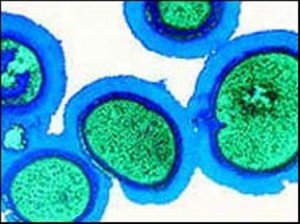The evolution of superbugs has been one of the biggest challenges for researchers in the recent times. These are the bugs that are resistant to antibiotics and other drugs that are in vogue today. Scientists have now found a way to fight these drug resistance bacteria. They have discovered that superbugs are able to achieve this feat by throwing antibiotics out of their bodies through a mechanism called efflux pumps. So, researchers have figured out that by blocking these efflux pumps and forcing the antibiotics to remain inside their bodies, superbugs can be killed. The research was carried out by a team from the Brown University.
The team of chemists has synthesized BU-005, a compound that can successfully block the efflux pumps in drug resistant superbugs. The compound has showed promising results as it successfully prevented superbug from throwing chloramphenicol from their systems. These efflux pumps are actually proteins that have evolved so as to throw out antibiotics from the bug’s system. Researchers have found that these pumps have reached a very high level of sophistication and can recognize different kinds of antibiotics, which have different chemical structures, manner of working and compositions. Thus, whatever be the antibiotic that you administer, the drug is able to resist it using its efflux pump mechanism.

However, researchers have always faced problems with superbugs because there are different species of them and each species has a different encoded protein that makes them resistant to diseases. The special thing about the current study is that researchers have managed to solve this problem in a manner that is cost effective.
The discovery of BU-005, which is a C-capped depeptides family compound, seems to be the single solution to all these problems. This compound can work against Gram-positive bacteria as well. In the past, C-capped depeptides were only thought to work against Gram-negative superbugs. Gram-positive bacteria are responsible for certain serious diseases such as tuberculosis. Most of the bacteria that are dangerous to humans belong to two classes – gram negative or gram positive.
One of the major objectives of the present study was to discover if efflux pumps of Gram-positive, which belong to Major Facilitator Superbug (MFS), could be blocked using C-capped depeptides. They devised a new screening method that used Ugi reaction process. In order to test various kinds of C-capped depeptides, 100 different variants were prepared for testing. In the course of testing different variants, it was found that BU-005 was effective against Gram-positive bacteria. This compound is effective against Gram-negative bacteria as well.